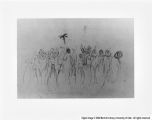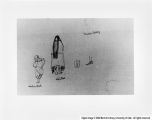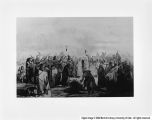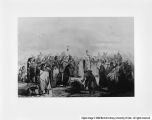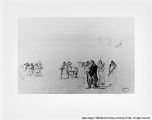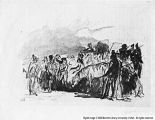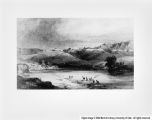| Title |
Karl Bodmer's Aquatints: the Changing Image |
| Call Number |
ND27.5 1990 .G37; Record ID 9912313820102001 |
| Date |
1990-06 |
| Description |
A thesis submitted to the faculty of the University of Utah in partial fulfillment of the requirements for the degree of Master of Arts. Department of Art, June 1990. |
| Creator |
Garrett, Madelyn Dean |
| Publisher |
University of Utah |
| Subject |
Artists; Aquatints; Westward movement; Indians of North America; Indigenous peoples--North America |
| Source Physical Dimensions |
xv, 349 leaves : ill. ; 28 cm. |
| Type |
Text |
| Format |
image/jpeg |
| Identifier |
http://content.lib.utah.edu/cgi-bin/docviewer.exe?CISOROOT=/Bodmer&CISOPTR=813 |
| Source |
Bound thesis |
| Language |
eng |
| Relation |
Karl Bodmer collection |
| Collection Name |
Rare Books Collection |
| Holding Institution |
Rare Books Division, Special Collections, J. Willard Marriott Library, University of Utah |
| Rights |
Digital version copyright 2004, Madelyn Dean Garrett and the University of Utah. All rights reserved. |
| Scanning Technician |
Charles Nielson |
| ARK |
ark:/87278/s6930tjf |
| Setname |
uum_rbc |
| ID |
52169 |
| Reference URL |
https://collections.lib.utah.edu/ark:/87278/s6930tjf |















































